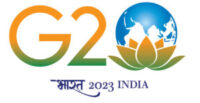Roorkee is well connected to Delhi by rail and road. It is situated on National Highways 58 and 73 and is on Amritsar-Howrah main rail route.
Some trains which are convenient for travelling between Delhi and Roorkee are New Delhi-Dehradun-New Delhi Shatabdi Express and Dehradun-New Delhi-Dehradun Janshatabdi Express. The nearest airport is located at Jollygrant, Dehradun. However, New Delhi is the preferred airport.
National Highway 58 from New Delhi to the higher reaches of the Himalayas passes via Roorkee. Roorkee is, therefore, well connected to all the major cities in the region by road. There are frequent bus services to this place from the Maharana Pratap Inter State Bus Terminal (Kashmere Gate) Delhi.
Climate
The climate here is extreme during winters as well as summers. During winters, the temperature falls down to as low as 1–20 C. In summers the temperature goes up to as high as 41–43 C. The rainfall is average and the downpour is heavy in the months of July and August.
- By Road
- By Air
- By Train
Traveling from Delhi, Roorkee is located towards north approximately 170 kilometers. Take the highway NH58, and it passes through Roorkee. The city of Haridwar is located further on the same highway about 29 kilometers from Roorkee.
The main bus depot of Roorkee is located on NH58. Several buses run from various cities in North India.
Nearest airport to Roorkee is Dehradun’s Jolly Grant airport which has Air India, Spice Jet and Jet Airways services from New Delhi. But most preferable airport nearest from Roorkee is the New Delhi International Airport which is about 180 kilometers away.
Easiest way to get to Roorkee is by train. There are several trains serving Roorkee daily from various cities around. The high speed trains Shatabdi and Jan Shatabti also stop at Roorkee on their route Delhi – Dehradun. By train, it takes less than 3 hours and 30 minutes to reach Roorkee from Delhi, so it is the fastest and most economical way of travel.
Incidentally, the first locomotive of India ran on rails in Roorkee in 1846, well before the first passenger rail that ran in Thane.



